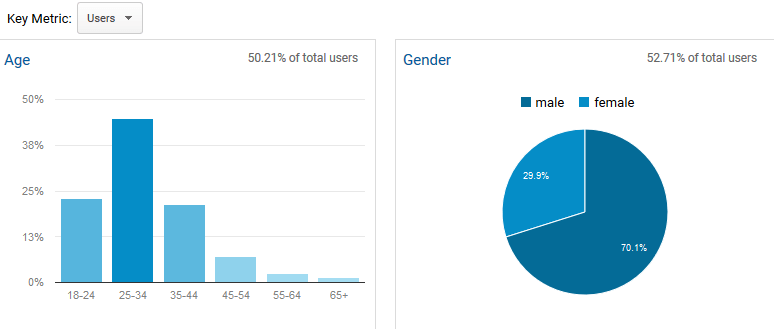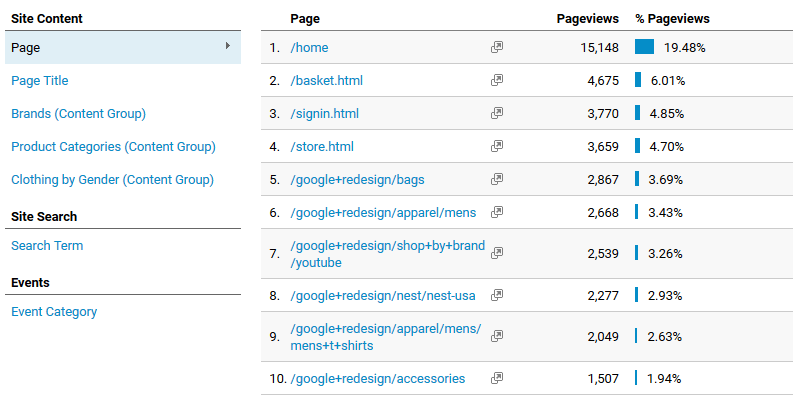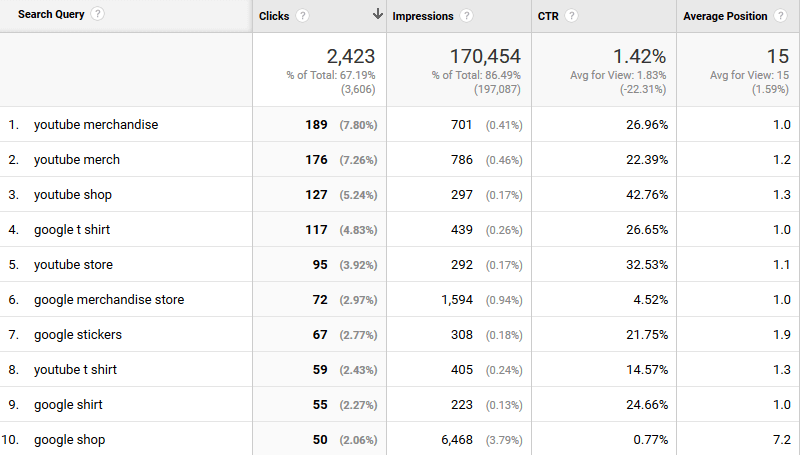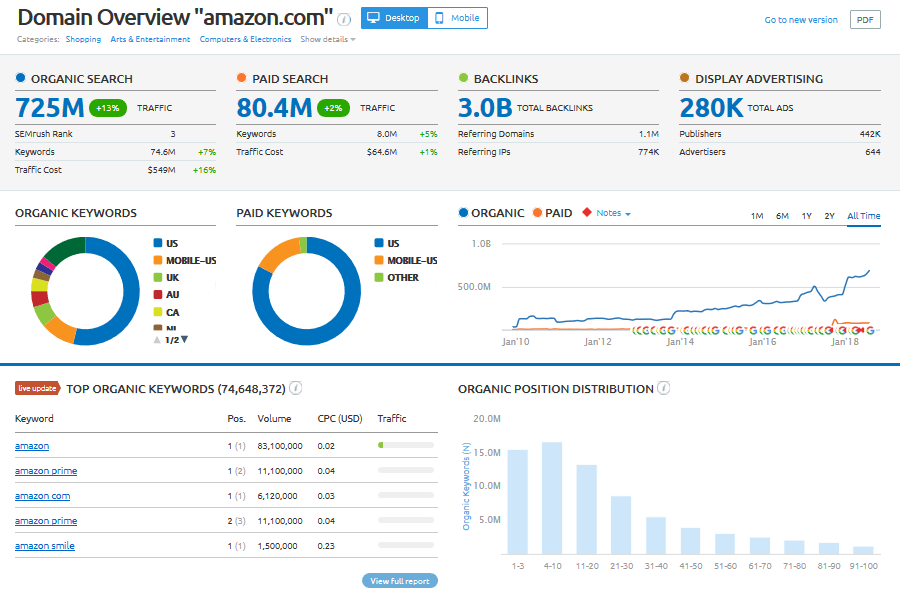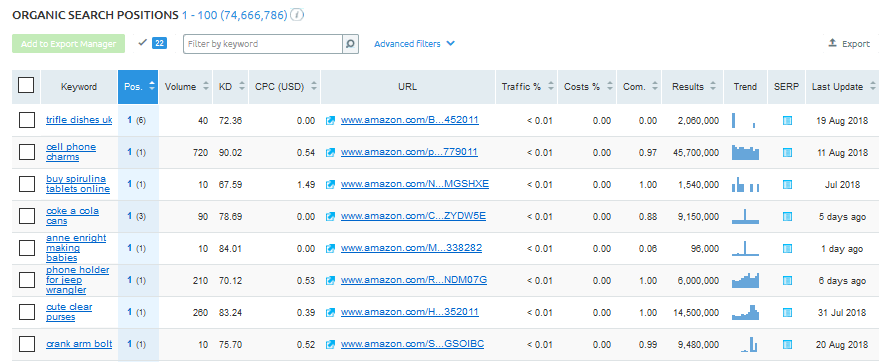If there’s one thing Google is good at, it’s keeping us on edge when it comes to their algorithms and changing ranking factors.
For example, Google recently rolled out mobile-first indexing; meaning from now on, your mobile site will be indexed before your desktop version. And we all know there’s no end in sight, leaving us to continually adjust our SEO efforts so our sites can rank well.
But there is one thing, however, that has stayed fairly consistent over the years when it comes to optimizing your website for higher search rankings: keyword research.
If you’re ready to ramp up your keyword research so your WordPress website can rank better in search results, draw more organic traffic, and get more conversions so your business can continue to grow, take a look at these actionable tips.
1. Learn About Your Existing Audience
It won’t matter how well you rank in search engine results, or how many people come to your website, if no one engages with your content, signs ups for your email list, or buys your products or services.
After all, if you’re using keywords that don’t resonate with your current audience, but rank well, the traffic that does land on your website will abandon your site once they figure out you have nothing to offer them.
A great way to monitor who your existing audience is and how they behave once on your site, so you can improve your keywords based on that data, is to get a free Google Analytics account.
Granted, Google Analytics offers a ton of information that can become overwhelming quickly. But if you know some of the key places to look, you can get a great head start on your keyword research.
To start, go to Audience > Demographics > Overview in your Google Analytics account to see who your existing audience is:
Next, go to Behavior > Overview and check out which of your web pages are the most popular among those that are coming to your website. This will clue you into what kind of content people enjoy, the topics they like the most, and which products they prefer.
Lastly, if you’ve connected Google Search Console to your Google Analytics account, you can go to Acquisition > Search Console > Queries to see which Google search terms are already bringing people to your site. You’ll also see their average search position, which helps you determine how effective they are.
Use this information as a starting point when it comes to deciding which keywords are going to work best for your site’s content.
2. Create a List of Potential Keywords
Now that you know a little more about who is coming to your website and how they behave while on it, it’s time create a list of keywords you can use moving forward.
Here are some of the best types of keywords to add to your list:
Broad Keywords
These will be the highly competitive, overreaching keywords that define your brand as a whole and generate a lot of traffic. For example, let’s say you own an eCommerce shop that sells shoes. One broad keyword that you’ll want to rank for is “shoes.”
Just don’t stop there. If you do, you’ll be competing with billions of other search results that also use the common keyword “shoe.” And, unless you’re a well-established shoe company such as Nike, chances of you ranking on the first page in Google using only a broad keyword like that are slim.
Specific Keywords
These will be the lesser competitive keywords that don’t drive as much traffic but bring people to your website that are looking for exactly what you have to offer. This means more conversions and sales.
Again using the online shoe store example, a more specific keyword you might want to rank for would be “men’s shoes.”
This narrows the search results down significantly and targets a very specific customer base. Now, anyone looking for “men’s shoes” will know you have what they want when they see you in their search results.
LSI Keywords
LSI stands for “latent semantic indexing” and refers to unique, longtail keywords that answer possible questions people might be asking Google. They also include common phrases that are strongly associated with the topic of your content.
Take for instance the question: what kind of men’s shoe do I wear to a wedding?
The person asking this question is looking for an answer and a very specific type of men’s shoe. If you happen to sell men’s dress shoes that are suitable for a wedding, you might have a blog post answering this question, product descriptions that include the keywords “wedding” or “wedding season,” and local keywords built into your content that direct people to a brick and mortar shop that’s near them.
If you need help coming up with keyword variations, check out the following tools:
3. Make Sure Your List Works
It’s not enough to draft a list of potential keywords and start throwing them into your content hoping they’ll boost your rankings and drive more traffic to your site.
You have to make sure people are actually searching for those keywords in search engines.
The easiest way to check your list of keywords is to go straight to the source: search engines. Just enter a keyword you’re thinking about using into Google’s search bar and see what happens:
From there, check the actual search results and see what’s already ranking as number one.
Anything on the first page is going to tell you what people are really looking for, as Google feels those are the most relevant search results for that keyword. Whatever those people are writing about or selling, you should be too.
4. Monitor the Competition
If you have a competitor in your industry that is ranking well in Google, has a lot of traffic, and generates a lot of revenue, you should copy what they’re doing – because it’s working.
You can use a tool like SEMRush to monitor your competition and find out data such as:
- How much organic and paid search traffic they see
- Their total number of backlinks
- How much is being spent on advertising
- Top organic keywords they’re using
- Their main organic competitors
- Top paid keywords
- Main paid competitors
- Example ads
- Actual backlink data
You can also check out the full report under the section labeled Top Organic Keywords to see exact Google positions of your competition’s keywords.
This data shows you what is working for your competition, what your target audience is actively searching for, and which keywords you should start focusing on. Take it for a spin:
And there you have it! You now know how to effectively perform keyword research for your growing website so you can boost your search rankings, drive more traffic, and get more sales.
Of course, this is in no way all you need to do when it comes to keyword research. Especially since Google will continue to make changes in an effort to improve the user experience, which will, in turn, affect how your website ranks in search results.
However, if you’re looking for a proactive approach to improving your search rankings right away, try implementing some of the above-mentioned strategies into your overall content marketing plan. You’ll soon find that no matter what Google decides to change, your search results will remain strong as a result of your thorough keyword research.
That about covers it for us. Do you have any tips or recommendations for tools to use for performing effective keyword research? We’d love to hear from you. Feel free to sound off in the comments below.
What to hear about our latest deals and new posts? Subscribe below 👍

